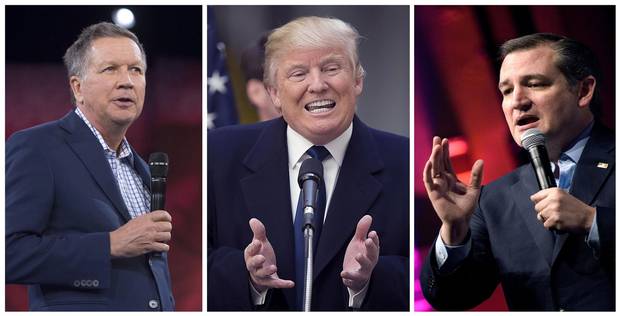The Republican leadership contest has reached a critical stop-Trump moment.
Rivals Ted Cruz and John Kasich have struck a deal to co-ordinate efforts in three upcoming state contests, where one or the other will step aside and allow a single anti-Trump candidate to campaign against the front runner.
Here is the deal in a nutshell:
- Indiana primary: 57 delegates up for grabs on May 3. Ohio Governor John Kasich said he will no longer campaign in this Midwest state – effectively giving Senator Ted Cruz an open path to take on Donald Trump. Delegates are awarded on a winner-take-all basis. The Texas senator is within striking distance of Mr. Trump, according to polling.
- Oregon primary: 28 delegates up for grabs on May 17. In this northwestern state, the Cruz campaign said it would cut back on its campaigning and give Mr. Kasich a clear path as the main rival to Mr. Trump.
- New Mexico: 24 delegates up for grabs on June 7. If the Republican leadership race goes down to the last day – when a handful of states vote – the arrangement in New Mexico could be key. Mr. Kasich will face Mr. Trump in a state where the Cruz campaign has been pulling back.
The co-ordinated efforts of the two candidates highlight how much the Republican Party and rival candidates have struggled to stop the billionaire real estate tycoon since last summer. Mr. Trump has dominated state contests and amassed more delegates than any other candidate, and the pool of available delegates to win is shrinking.
Here is a look at how many delegates are up for grabs in the remaining 15 contests. The Cruz-Kasich deal in the three states represents a small slice of those remaining delegates.
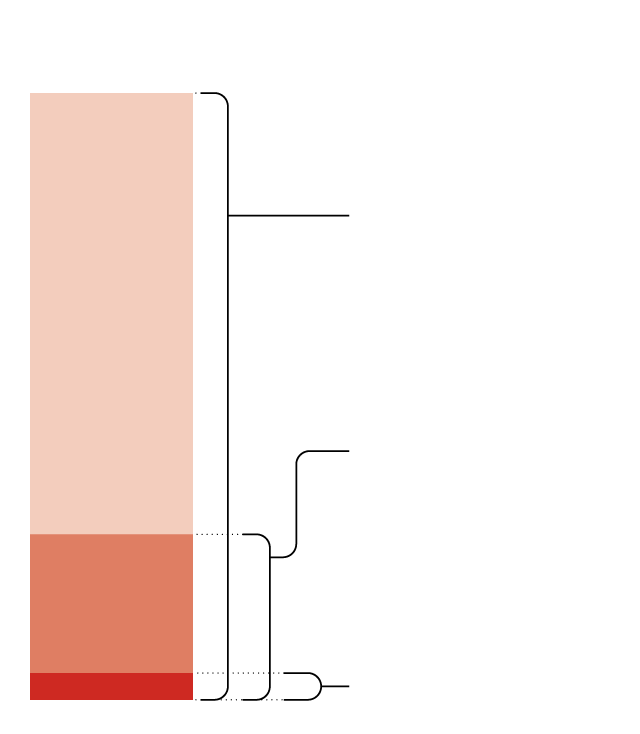
The delegates at stake in three states where anti-Trump forces are co-ordinating
Total Republican delegates at 2016 convention in Cleveland:
2,472
Total delegates up for grabs between now and the conclusion of primaries on June 7:
674
Total delegates of three states where Cruz and Kasich have made a deal:
109
MURAT YÜKSELIR/THE GLOBE AND MAIL › SOURCE: AP
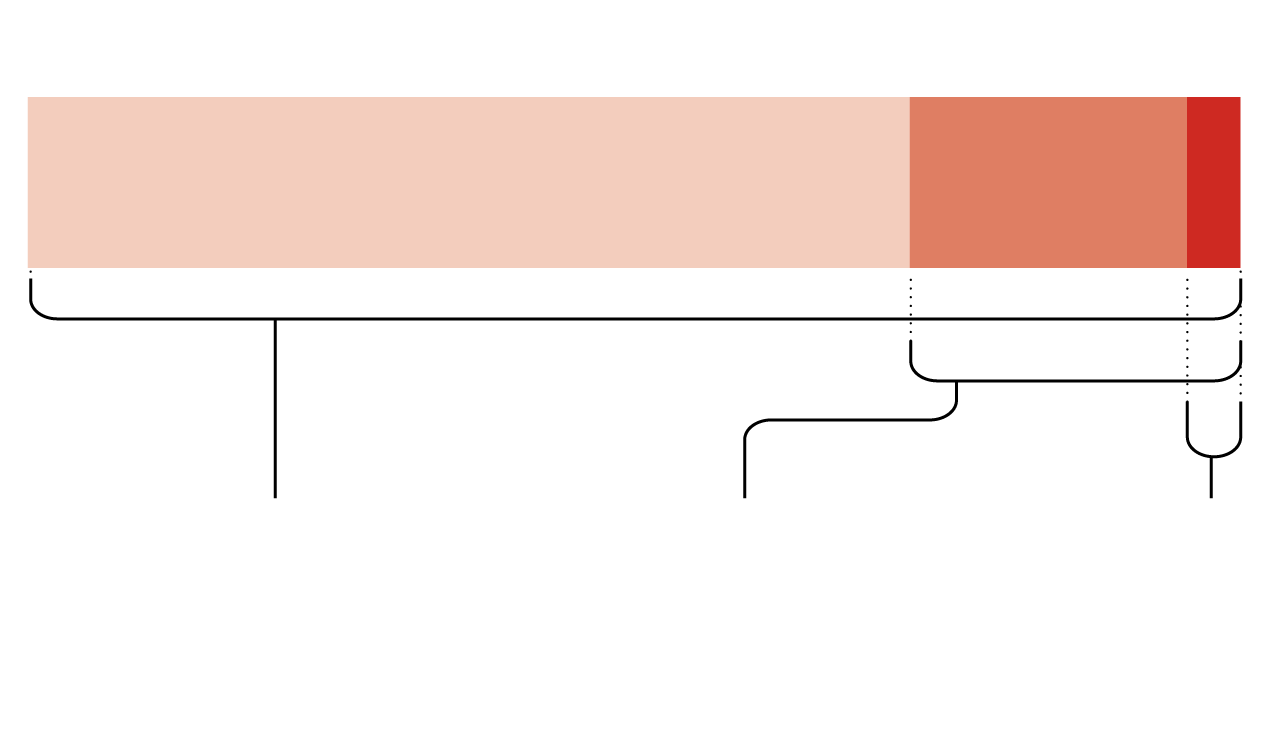
The delegates at stake in three states where anti-Trump forces are co-ordinating
Total Republican delegates at 2016 convention
in Cleveland:
2,472
Total delegates up for grabs between now and the conclusion of
primaries on June 7:
674
Total delegates of three states where Cruz and Kasich have made a deal:
109
MURAT YÜKSELIR/THE GLOBE AND MAIL › SOURCE: AP
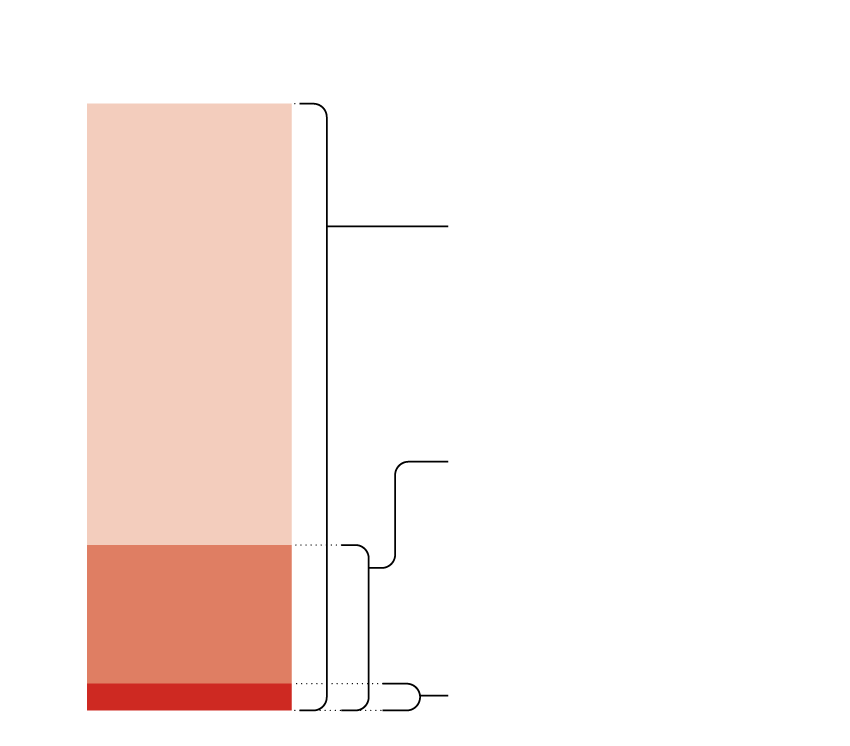
The delegates at stake in three states where anti-Trump forces are co-ordinating
Total Republican delegates at 2016 convention in
Cleveland:
2,472
Total delegates up for grabs between now and the conclusion of
primaries on June 7:
674
Total delegates of three states where Cruz and Kasich have made a deal:
109
MURAT YÜKSELIR/THE GLOBE AND MAIL › SOURCE: AP
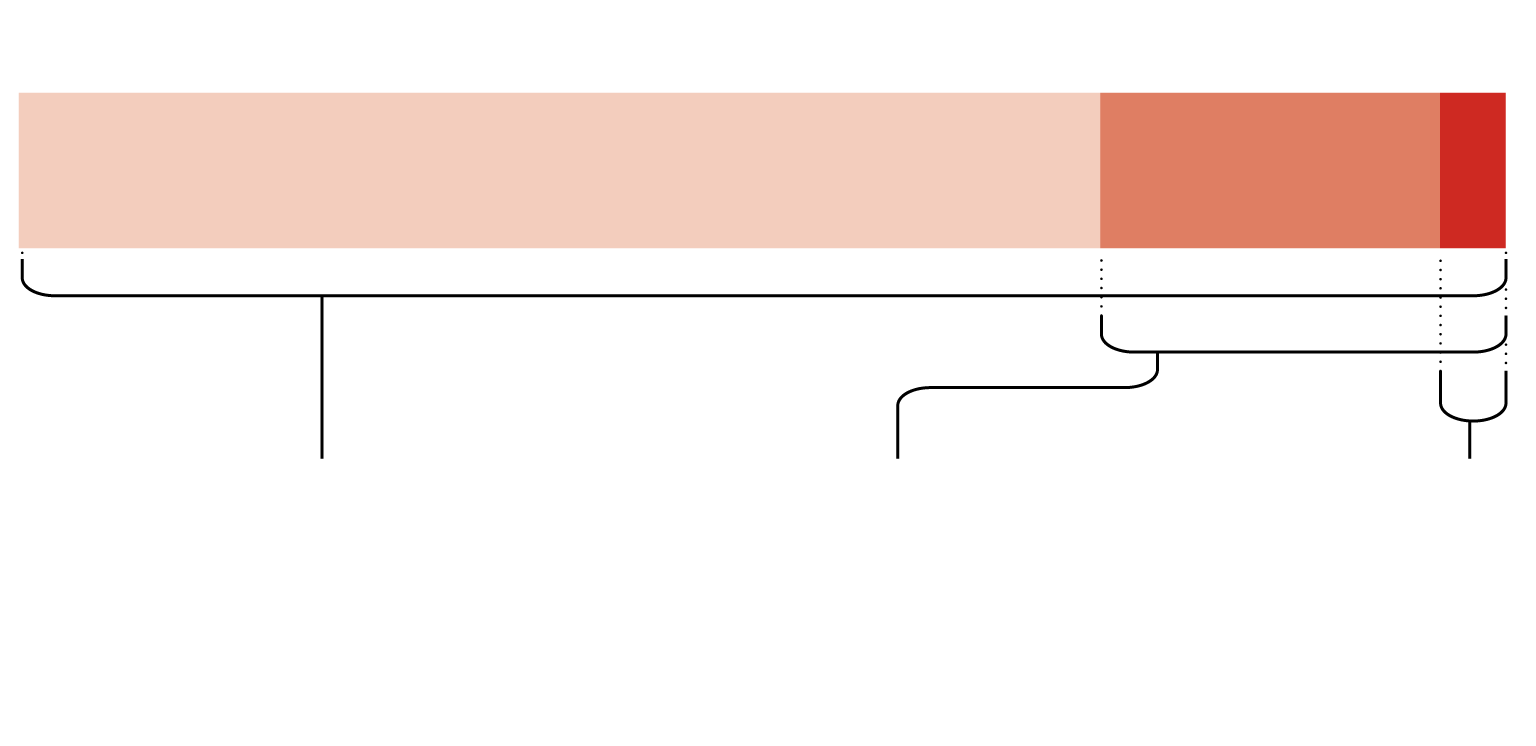
The delegates at stake in three states where anti-Trump forces are co-ordinating
Total Republican delegates at 2016 convention
in Cleveland:
2,472
Total delegates up for grabs between now and the conclusion of
primaries on June 7:
674
Total delegates of three states where Cruz and Kasich
have made a deal:
109
MURAT YÜKSELIR/THE GLOBE AND MAIL › SOURCE: AP
When the Republican state nominating process wraps up on June 7 and the national convention begins in Cleveland in July, the effectiveness of the Kasich-Cruz strategy will become clear: either it blocked Mr. Trump from winning the 1,237 delegates needed to clinch the nomination and forced a contested convention, or it was a case of too little too late.
The next big day in the Republican leadership race takes place April 26 – when a bunch of northeastern states votes and 172 delegates are up for grabs. Mr. Trump is expected to dominate. Here is where the delegate count stands going in to Pennsylvania, Maryland, Rhode Island, Delaware and Connecticut.
